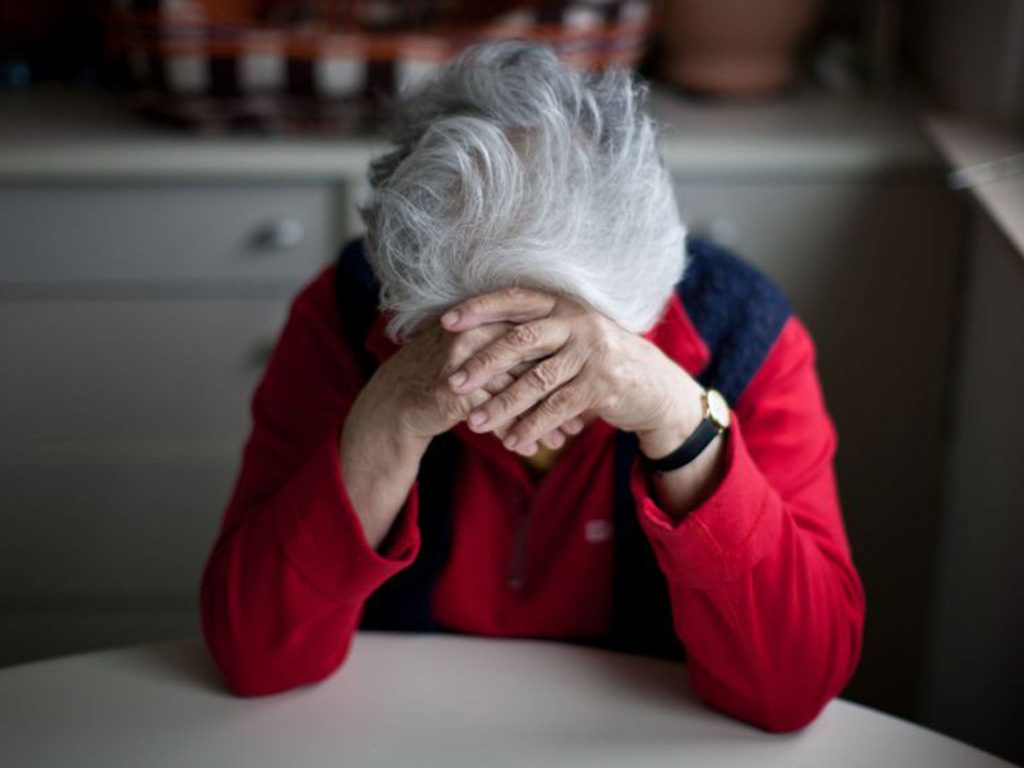Blog Post
Elderly Canadians opting for assisted suicide rather than face another lockdown
By Jonathon Van Maren
As major Canadian cities head into another lockdown, the unfortunate reality is that we have not used the past six months to figure out how to ensure public safety while mitigating the inevitable fallout from mental health crises, addiction relapses, and suicide. It is true that governments have been swamped simply trying to keep up with the pace of events, but it is also true that we are tragically failing to care for the very vulnerable populations that the lockdowns are supposed to protect—the elderly. Ontario, for example, is averaging 200 assisted suicide deaths per month, and some elderly people are stating that being confined to their rooms in assisted living facilities is simply unbearable.
CTV reported earlier this week that one 90-year-old woman, Nancy Russell, chose assisted suicide over the prospect of being locked down again. Her family says she was a spry and social person, but “she chose a medically-assisted death after she declined so sharply during lockdown that she didn’t want to go through more isolation this winter.” Facing the isolation of another lockdown, Russell literally decided she’d rather die.
Russell isn’t the only one. According to doctors, the “lockdowns are accelerating the timelines among seniors already considering medically assisted deaths.” According to Dr. Susan Woolhouse, who specializes in assisted suicide: “They met the criteria and wanted MAID prior to lockdown but are choosing to die sooner than they would otherwise because the LTC and retirement lockdowns, particularly visitor restrictions, are so miserable.”
According to Dr. Samir Sinha, a geriatric specialist at Mount Sinai Hospital: “I do appreciate that this family has come forward, especially when the balance of evidence out there actually says that these restrictions, in too many circumstances, are overly restrictive and actually causing unnecessary harm. When you stick someone alone and deprive them of the usual things that bring them interest in joy, that can be an incredibly isolating, lonely, depressing experience.”
“And frankly, when you can’t look forward to getting out of your room, to having meals or doing activities with others, to even seeing your own families and loved ones, you can imagine for a person in the last few years of their life where these are the basic things that actually bring them joy and really defined what they would call their own quality of life, when you actually deprive a human being of these things, you can imagine that that can have significant psychological consequences that can really give people no real will to live anymore.”
“Frankly, we’ll find that a lot of the restrictions that are being put in place right now actually violate the rights of the residents themselves, their families, their substitute decision makers, and what really pains me is when I hear stories of people saying, ‘I’d just rather die.’ The fact that there can be such a degree of collateral damage by simply isolating people to this extent, this is why I and others have been long advocating for finding a better balance, balancing visitor restrictions, but also the safety and well-being of residents as well.”
CTV highlighted the fact that other countries, like the Netherlands, “recognized the decline in senior residents of long-term care homes, and found balance between precautions and allowing activities and family visits. After a pilot project allowing one visitor per resident at 26 nursing homes did not result in a single new case of COVID-19, the Netherlands officially allowed all nursing homes to adopt those guidelines across the country. Similar measures are recommended now in Canada too, but doctors say many regions have not responded.”
Maclean’s summed up the situation bluntly: “The year of the pandemic has busted the myth that Canada values its seniors,” pointing out that Canada’s record on protecting her elderly is uniquely awful:
But the reality of 2020 is that Canada’s seniors are suffering disproportionately, and it’s because these promises have gone unfulfilled. The proof is in the pandemic numbers: by the summer, over 80 per cent of all COVID-19 deaths in Canada occurred in nursing and retirement home settings—nearly twice the Organisation for Economic Co-operation and Development (OECD) average, even though Canada’s total COVID-19 mortality rate was comparatively lower. The degree of devastation became too large for staff at these homes to manage. In the first wave of COVID, the military was called into long-term care homes in Quebec; in the second, the Canadian Red Cross was summoned into some Ontario homes. In Manitoba, Minister of Health Cameron Friesen told CBC News that deaths in personal care homes are “tragic” but “unavoidable.” In Alberta, Premier Jason Kenney noted this spring that many people dying from COVID had already surpassed their life expectancy.
I’m not claiming to have all of the answers, and I’m not pointing fingers at the premiers or the prime minister (although Trudeau’s disgusting expansion of euthanasia, especially at this time, is beyond shameful.) This problem is multi-faceted and has been unfolding for decades—our current leadership is simply facing a pandemic that has brutally exposed our collective lack of concern for the elderly. Part of it is the fact that families break apart and many are disinterested in their parents, preferring to warehouse them in what amount to storage facilities while strangers tend to them until they die; Part of it is that the government is expected to find a way to care for people once they have been abandoned by everyone else. The breakdown of the family, as is so often the case, is a huge part of the problem.
But it is still criminal that months after the first wave, we have not looked to other nations and found ways to ensure that the elderly can live human lives in the meantime. COVID-19 has forced us to face difficult facts. It would be a tragedy if we ignored the voices of these vulnerable people once again.








